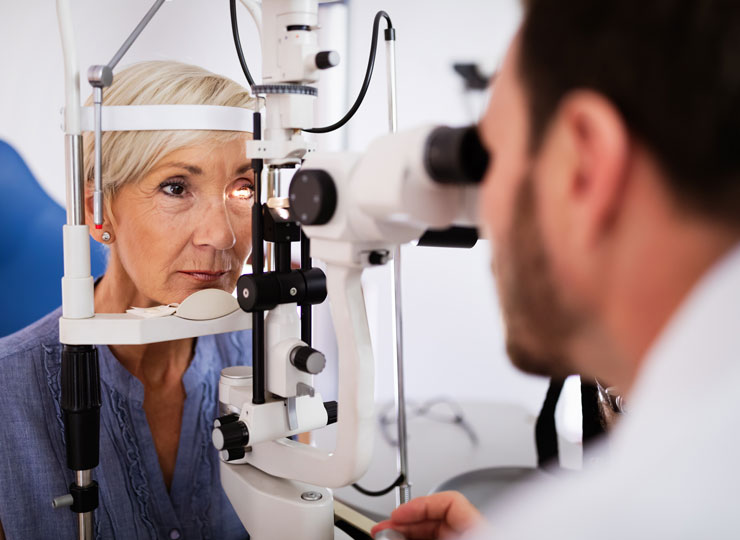
May 25, 2021
Vision and hearing loss are extremely common as we grow older. But it’s not just our eyes and ears that are at risk. Poor vision and loss of hearing can indirectly affect the brain and, over the long term, increase the risk of developing Alzheimer’s disease, according to a new report.
For the study, researchers in Korea looked at 6,520 older men and women who ranged in age from their late 50s to 101. They completed questionnaires about their ability to see and hear with or without glasses or hearing aids.
At the study’s start, 932 of the older men and women had normal seeing and hearing; 2,957 had either visual or hearing problems; and 2,631 said they had both seeing and hearing impairments.
Dementia was more than twice as common in the group with both hearing and visual impairments at the beginning of the study. In that group, 201 people out of 2,631, or 8 percent, had dementia at the start of the study, compared to 2.4 percent with only one sensory impairment and 2.3 percent with normal vision and hearing.
Over the next six years, the study volunteers underwent tests of thinking and memory skills every two years. During that time, 245 people developed Alzheimer’s disease or another form of dementia. Of the 1,964 people with both visual and hearing impairments, 146 (7.4 percent) developed dementia, compared to 69 (2.9 percent) of the 2,396 people with one impairment and 14 (1.9 percent) of the 737 people who continued to have healthy vision and hearing. The decline on thinking test scores was steepest among people with both hearing and vision impairment.
“Depending on the degree of hearing or vision loss, losing function in your senses can be distressing and have an impact on your daily life,” said study author Dr. JinHyeong Jhoo of Kangwon National University School of Medicine. “But our study results suggest losing both may be of particular concern.”
Dr. Jhoo speculates that both vision and hearing loss may have a compounded effect because diminishment of both senses curtails mobility and social interactions, which can lead to isolation and lack of social interactions and increase feelings of loneliness and depression, all of which are known risk factors for Alzheimer’s disease.
“Older people with only a visual or hearing impairment can usually still maintain social contact, so they may not feel be as isolated or depressed as people who have both impairments,” Dr. Jhoo said. “However, when someone has both impairments, that may increase the risk of isolation and depression, which previous research has found may affect dementia risk and thinking skills later on.”
Poor vision and poor hearing are forms of sensory deprivation, in which the brain is getting only limited stimulation. Stimulation of the brain, whether it’s through the senses or through cognitively stimulating activities like learning a new language or doing crossword puzzles, has been linked to a lower risk of dementia.
Poor vision, like poor hearing, also often results in social isolation. Older people who can’t see or hear well may be reluctant to leave the house or drive or venture out to meet friends. Regular social interactions are likewise linked to a lower risk of developing dementia.
The findings underscore the importance of getting regular vision and hearing checks to help keep the brain in optimal health, by keeping individuals as functional as possible to engage in as many activities as possible. Eye diseases like glaucoma, macular degeneration and diabetes-related vision loss are common in older people. Regular eye and hearing exams can help to identify these problems early, and effective treatments and aides are available for many vision and hearing problems to help limit sensory losses.
By ALZinfo.org, The Alzheimer’s Information Site. Reviewed by Marc Flajolet, Ph.D., Fisher Center for Alzheimer’s Research Foundation at The Rockefeller University.
Source: Dual Sensory Impairment and Cognitive Impairment in the Korean Longitudinal Elderly Cohort. Gihwan Byeon, M.D.; Gyu han Oh, M.D.; Jin Hyeong Jhoo M.D., Ph.D.,: et al: Neurology, April 7, 2021











